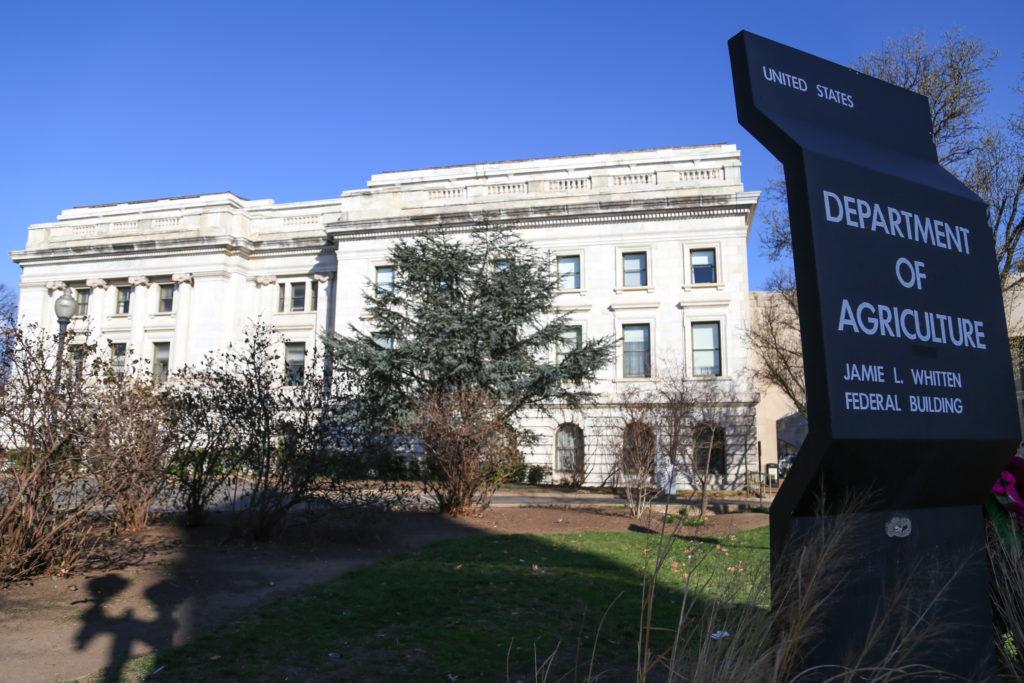Faculty say the removal of a federal online database that tracks the mistreatment of animals will not affect their research.
Researchers in the biology department said the USDA’s removal of information about the treatment of animals is concerning but that their research will be unaffected because it largely focuses on invertebrates: The federal government and GW’s office of research integrity only consider organisms with backbones to be animals.
The USDA’s Animal and Plant Health Inspection Service tracks and reports the mistreatment of animals across the U.S. The USDA removed the APHIS database, which records instances of animal research mistreatment, from its website in early February, citing privacy concerns and ongoing litigation. Those records are now only available to the public through Freedom of Information Act requests.
University spokeswoman Emily Grebenstein said in an email that the USDA annually conducts unannounced inspections of animal research facilities. She said that although the records of these inspections are no longer available to the public, the University is committed to maintaining high standards for animal welfare.
“A change in the accessibility of these records does not change the underlying protections for laboratory animals or the USDA inspection schedule nor does it impact GW research or research funding,” Grebenstein said.
She said that the University, like other institutions that use animals in research, has a committee to guide research and ensure animals’ protection.
Grebenstein added that researchers must go through multiple stages of approval from the research office and the government before beginning research. The school is accredited by the Association for Assessment and Accreditation of Laboratory Animal Care and reports to national agencies, she said.
GW has two holding areas for animals used for research, one on the eighth floor of the Science and Engineering Hall and a larger facility in the basement of Ross Hall. In 2015, the USDA issued a citation for the mistreatment and death of five hamsters, after which researchers and staff received animal care training.
Tanya Espinosa, the public affairs specialist for the USDA, said that even with the removal of the database, the Animal Welfare Act still ensures that research facilities are required to obtain a license from the USDA and are inspected about once a year.
“The removal of information from our website has no bearing on the activities of our inspectors in ensuring facilities that are regulated are in compliance with the Animal Welfare Act,” she said. “Our inspectors continue to inspect facilities and enforcement actions if necessary.”
Mollie Manier, a professor of biology who studies gut microbes and the brain using flies, said the rules and database ensure the animals’ well-being but that those rules did not apply to the insects she uses in her lab.
“There were a lot of animal care protocols and guidelines around the ethical treatment and usage of animals and usage of animals in scientific experiments,” Manier said. “None of those apply to organisms that are animals but don’t have backbones.”
She said she was surprised to discover that neither the government nor the University considers insects to be animals, but said that because she works with flies she has to “jump through fewer bureaucratic hoops.”
“Those rules are in place for very good reasons,” she said. “I’m in support of those rules, but I’m also glad they don’t apply to my research.”
Courtney Smith, a professor of biology who studies pathogens using sea urchins, said that an animal’s nervous system, brain and ability to feel pain are factors in determining which animals are protected under the Animal Welfare Act. These distinctions seem less clear to biologists in practice, she said.
She added that scientists who do use vertebrates in research are required to complete tedious paperwork before being able to move forward with animal research.
“I have talked to people that work on vertebrates that have seriously considered switching to invertebrates because it saves them multitudes of paperwork piles,” she said.
Matthew Zembrzuski, the manager of research compliance at American University, said that because the database made animal research infractions public, researchers and institutions can learn from others’ experiences.
“It’s important to learn from mistakes that others have made to prevent abuses or bad practices,” Zembrzuski said. “The database itself isn’t going to change the research that’s conducted or the methods to ensure ethical use.”





